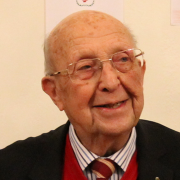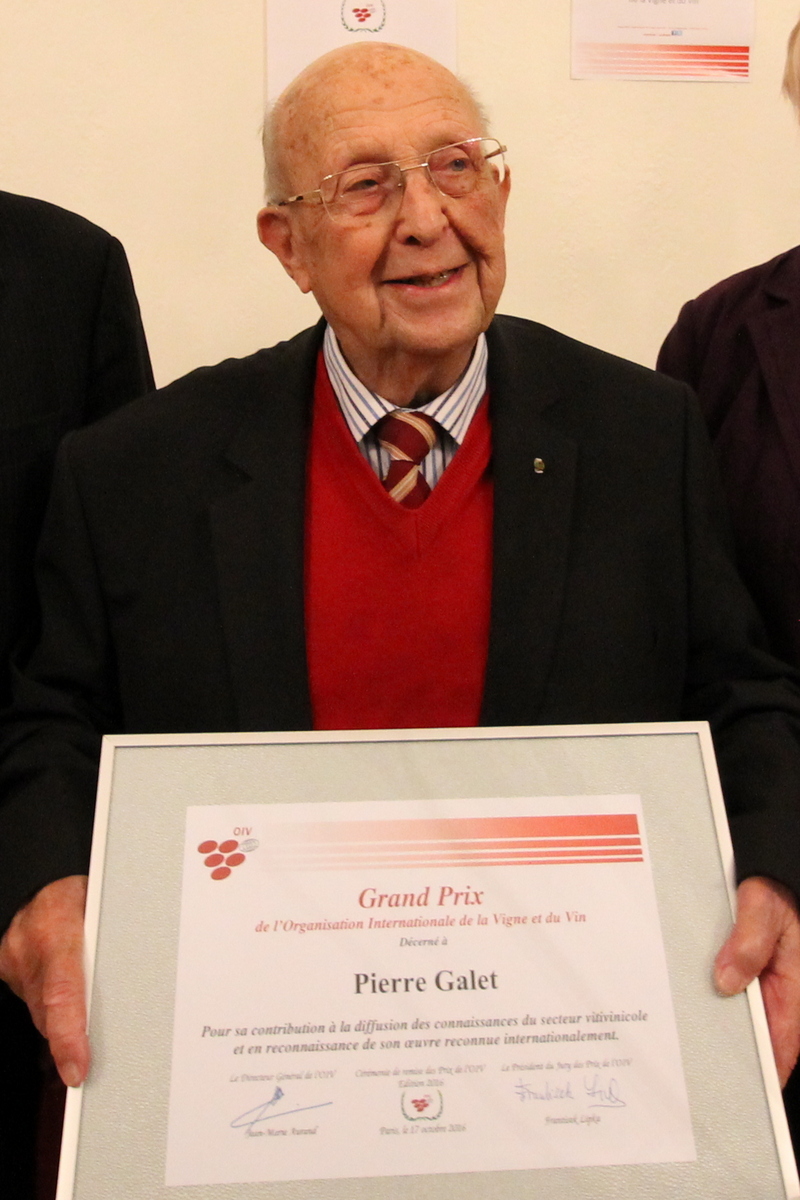
In 2016, he was presented with the OIV Grand Prix Award in recognition of his exceptional work. This tribute to the author of the Dictionnaire encyclopédique des cépages et de leurs synonymes (Encyclopaedic dictionary of vine varieties and their synonyms) symbolises the OIV’s acknowledgement of his contribution to the dissemination of knowledge of the wine sector and the role of ampelography in the development of viticultural sciences.

His astounding memory and scientific knowledge have repeatedly drawn the utmost admiration from numerous researchers, who have been able to access this extraordinary wisdom through his internationally renowned work:
1947 - Istanbul, Turkey: honorary diploma for the book written with Henri Agnel, Les Porte-greffes (Rootstocks).
1953 - Rome, Italy: Jury Award in the “Viticulture” category for his book, Précis d'ampélographie pratique (Handbook of Practical Ampelography).
1963 - Paris, France: Jury Award in the “Viticulture” category for his book, Cépages et vignobles de France (Vine varieties and vineyards of France), tomes 1 & 2.
1979 - Stuttgart, Germany: “Viticulture” Award for his book Les Maladies et les parasites de la vigne (Vine diseases and parasites), tome 1.
1983 - Johannesburg, South Africa: Jury award of special recognition in the “Viticulture” category, with a silver medal, for the collective body of his work.
2001 - Adelaide, Australia: Jury “Viticulture” Award with a silver medal for his book, Cépages et vignobles de France (Vine varieties and vineyards of France), 2nd edition, tomes 1 & 2.
2006 - Paris, France: Jury Award in the “Viticulture” category for his book, Cépages et vignobles de France (Vine varieties and vineyards of France), 2nd edition, tome 3 (2 volumes).
2016 - Paris, France: OIV Grand Prix Award for his contribution to the dissemination of knowledge of the wine sector and in acknowledgement of his internationally recognised work.